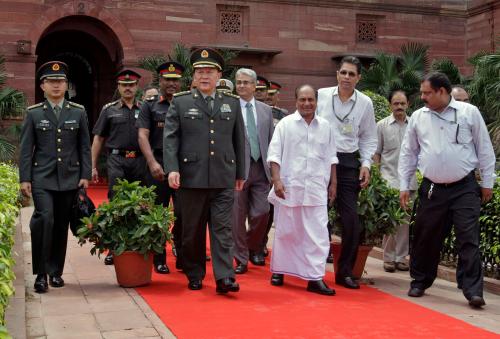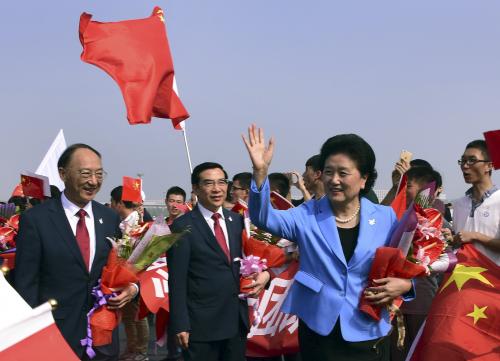Content from the Brookings Institution India Center is now archived. After seven years of an impactful partnership, as of September 11, 2020, Brookings India is now the Centre for Social and Economic Progress, an independent public policy institution based in India.
This article first appeared in the Times of India. The views are of the author(s).
The National Congress of the Communist Party, held every five years, is the closest thing authoritarian China has to an election. The most recent Congress – the 19th – was held October 18-24, and was an occasion for the over 2,000 delegates to deliberate and agree on policy matters guiding the nation. It also witnessed the selection of the Party’s Central Committee, the 25 member Politburo, the 11 member Central Military Commission, and the 7 member Politburo Standing Committee, which forms the country’s most exclusive leadership circle.
Observers in China and around the world had been on the lookout for signs about the degree of centralised power that will now lie with President Xi Jinping, and hints about his future succession plans. The implications are potentially significant. Among other things, they will affect India’s economic prospects, border security, neighbourhood relations, and global ambitions. With the unveiling yesterday of the Politburo Standing Committee, we now have some tentative answers, although they are far from encouraging.
To read more, please click here.










Commentary
Op-edThe rise and rise of Xi Jinping: At 19th Party Congress, he consolidates power to a degree unseen since Mao and Deng
October 26, 2017